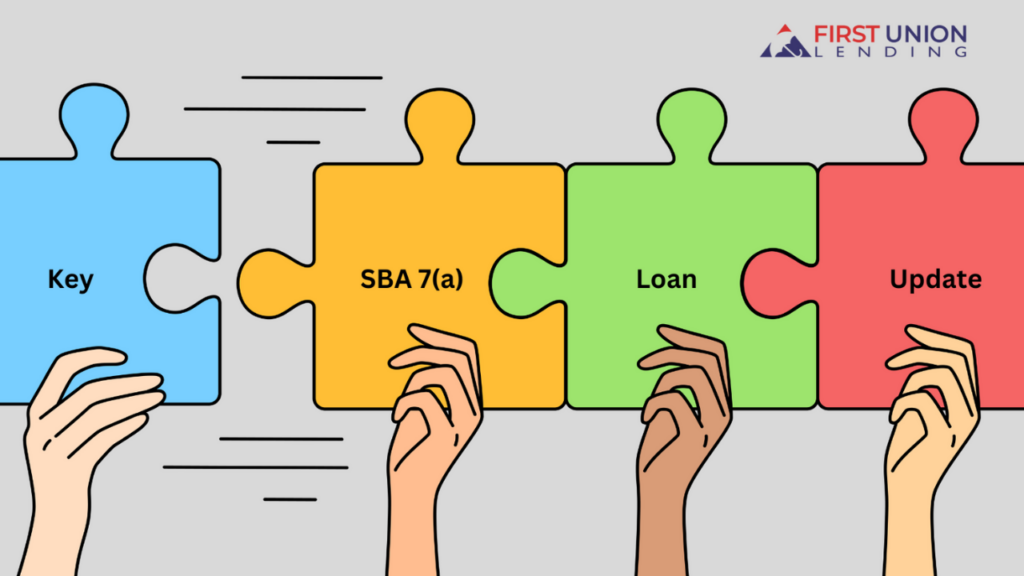
On August 1, 2023, the Small Business Administration (SBA) implemented several improvements to its flagship 7(a) working capital and 504 fixed asset loan programs. These changes were designed to modernize these programs and expand access to capital for small businesses, especially those seeking small-dollar loans or belonging to underserved demographics.
Enhanced SBA Eligibility Determination
The SBA has now assumed responsibility for determining eligibility for all loans based on ETRAN data submissions. This move is a significant shift from the previous system where lenders decided program eligibility under delegated authority.
Refined Affiliation Considerations
The SBA has also modified its affiliation policies. Previously, when applying SBA size standards, affiliation included ownership and the subjective concept of “control”. Now, affiliation focuses only on ownership considerations, simplifying the eligibility determination process.
Strengthened Fraud Checks
To further safeguard the integrity of the loan programs, the SBA now conducts fraud reviews on every loan application. Lenders must continue to comply with FinCen BSA/KYC requirements, ensuring a robust, two-tier check system.
Simplified Loan Authorization Process
The authorization process has been streamlined by introducing a one-click “Terms and Conditions (Ts&Cs)” sheet generation using information already entered in ETRAN. This change significantly reduces the administrative burden on lenders.
New Criminal Background Checks/Character Determinations
The SBA has relaxed the requirements for criminal background checks. Whereas previously owners had to answer three questions regarding their prior criminal history and could be subjected to a lengthy character determination process, applicants now only have to answer one question regarding the prior criminal background of its owners, with no requirement for a criminal background check or fingerprints.
Expanded SBSS Score Criteria
The SBA will now provide FICO Small Business Scoring Service scores (SBSS scores) for all 7(a) loans under $500,000, expanding from the previous threshold of $350,000. This change broadens the pool of businesses benefiting from this scoring system.
Revised Equity Injection Requirements
Changes have been made to the equity injection requirements for loans under $500,000 and those above $500,000. No equity injection is required for loans under $500,000, and lenders can follow their policies for similarly situated private sector loans, for loans above $500,000, a 10% equity injection is required for complete ownership changes.
Enhanced Loan Processing for Same Institution Debt Refinance
Lenders are now permitted to process these loans using delegated authority so long as the debt is current for the past 12 months. This change simplifies the loan processing procedure, making it more efficient and less cumbersome.
These updates reflect the SBA’s ongoing commitment to supporting small businesses, particularly those historically facing challenges in accessing capital. By implementing these changes, the SBA aims to level the playing field and make it easier for all small businesses to thrive.
